
Saul is a mitra from the FWBO’s North London Buddhist Centre. Last month he travelled to India to team up with the
Amida Trust, who have for some three years now been running English classes in Delhi under their ‘Buddhist voluntary service overseas scheme’. He sent FWBO News this report -
“I’ve recently finished two weeks teaching very large classes of children from slum areas in Shahadhara in east Delhi. At first I couldn’t cope with it, or I felt I couldn’t cope with it. Then I became rather accustomed to it and I've missed it on leaving.
Classes were hectic affairs with anything from 45 to 70 children there. Shabbily dressed with big open smiles and irrepressible enthusiasm. I say hectic because children were coming and going from the classroom during the class. When I commented on this I was told that it was better than before!
These classes were usually conducted in half built Buddhist viharas in the slum districts. The conditions were extremely basic. Blackboards, when there were any, were crude and basic. Power cuts would frequently plunge the vihara into darkness. Equipment minimal. Paper rare and books next to non-existent.
We travelled to these outreach classes on rickshaws or in auto-rickshaws “tuk-tuks’ through the chaotic Delhi traffic. All manner of traffic: bicycles, motor bikes, ox carts all vied with lorries, buses and cars. The rules were pretty minimal, nobody worried too much about traffic lights or the right of way, not everyone even drove on the same side of the road. I confess I found it all rather exciting.
Outside the vihara there was the seething mass of humanity: beggars and street vendors, endless stalls and tiny stores; incessant activity and the omni-present smell of sewerage. Sometimes our classes were conducted in order to increase the harmony in conflict torn communities. Occasionally they were in relatively harmonious Buddhist communities. Their poverty was what they all had in common.
After two weeks’ I was used to it! The classes were led by two spirited individuals – Shiasnu (Joy) and James Goodman – who against all odds managed to maintain their teaching. We were working for ADEPT – the Amida Delhi Education Project Team. At first I can’t say I really I really warmed to their approach, which involved lots of song and movement. Then I realized that actually it did really work because it motivated and enthused the young learners. Mostly I’ve been used to teaching adults so it was a bit of a culture shock. The sessions with the children didn’t seem like ‘real lessons’ but then I'd been thrown into a situation where they didn’t necessarily have blackboards, only occasionally notebooks, and so on. Use of movement motivated them and they clearly enjoyed the classes. Whenever someone did well Joy would call out ‘give that child a sticker’ and they would proudly walk out to the front of the class to get their sticker. The teachers refused to allow any smacking to discipline the children and they tended to get overexcited and classroom control seemed problematic. Then I started to realize that they were actually succeeding in increasing the confidence and self-esteem of these children.
At first I found it all rather exhausting and overwhelmed by these classes. Delhi in midwinter was a hard way to start in India, not even the food would stay in my stomach! Everything, just everything had changed. But I got used to my little room on the roof of the block, even when the cold North West winds blowing off the Himalayas tried to invade it. My tolerance of noise shot up, and later, as I started taking tea at roadside cafes with the workers, neighbours started to recognize me, little routines started to take over – and then, so quickly, my stay there was over and it was time to take the train south to
Nagpur and more English teaching with the TBMSG’s many projects there…
Labels: Delhi, engaged buddhism, India, Interbuddhist
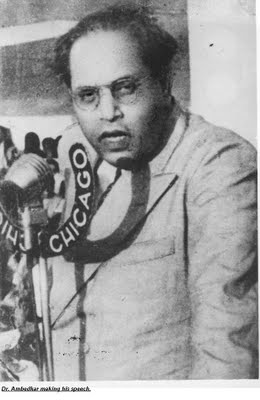 Following yesterday’s post announcing the run-up to the anniversary of Ambedkar’s conversion to Buddhism on October 14th, news is in of an ‘Ambedkar Month’ in San Francisco, organised by Jai Bhim International and the FWBO’s San Francisco Buddhist Centre.
Following yesterday’s post announcing the run-up to the anniversary of Ambedkar’s conversion to Buddhism on October 14th, news is in of an ‘Ambedkar Month’ in San Francisco, organised by Jai Bhim International and the FWBO’s San Francisco Buddhist Centre. 
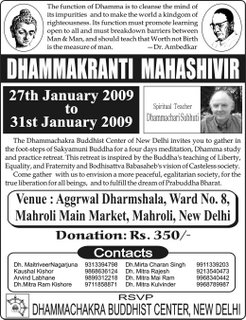
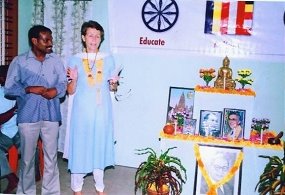
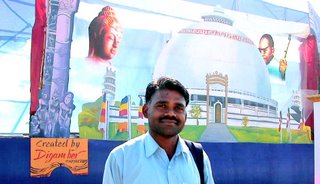

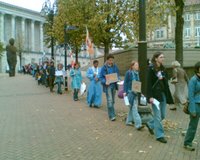
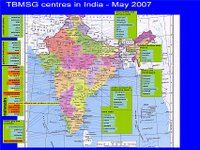
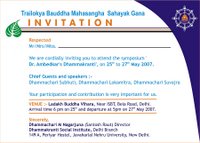
 rss
rss